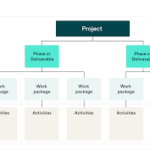Project management is a critical aspect of operational success, regardless of industry. It involves overseeing projects from inception to completion, ensuring that objectives are met efficiently. The adoption of an effective management methodology can significantly impact the outcome of any project. This article will explore various project management methodologies and provide insights on how to identify the right one to suit specific project needs.

Understanding Project Management Methodology
A management methodology is a set of principles, tools, and processes used to manage a project. It provides a systematic approach to planning, executing, and completing a project, helping managers oversee project development effectively. Various methodologies exist, each with its unique attributes suited to different types of projects.
The Importance of Choosing the Right Management Methodology
Selecting the appropriate management methodology is crucial as it affects the project’s flow and the overall productivity of the team. It ensures that resources are utilized optimally, risks are managed appropriately, and the project’s objectives are met within the stipulated time and budget. You may also read How to identify and develop your leadership style
A Glimpse into Different Project Management Methodologies
Waterfall Methodology
- Description: This is a linear, sequential approach where each phase must be completed before moving on to the next.
- Best Suited For: Projects with clear requirements and minimal change.
Pros and Cons
- Pros: Easy to understand, clear structure.
- Cons: Inflexible, struggles with complexity and uncertainty.
Agile Methodology
- Description: This iterative approach allows for flexibility and adaptation, focusing on customer satisfaction and team collaboration.
- Best Suited For Software development projects and those requiring regular reassessment and revisions.
Pros and Cons
- Pros: Adaptable, promotes team collaboration.
- Cons: Can be difficult to manage, less predictable.
Scrum Methodology
- Description: A subset of Agile, focusing on delivering the highest value in the least amount of time via sprints.
- Best Suited For: Projects requiring frequent changes and quick deliveries.
Pros and Cons
- Pros: High flexibility, and early discovery of issues.
- Cons: Requires experienced team members, can be chaotic.
Kanban Methodology
- Description: It emphasizes continuous delivery without overloading team members, focusing on visualizing the workflow.
- Best Suited For: Projects that benefit from a steady, continuous output.
Pros and Cons
- Pros: Enhances flow, and limits work in progress.
- Cons: Less structured, scope creep is a risk.
PRINCE2 Methodology
- Description: PRINCE2 stands for PRojects IN Controlled Environments, and it emphasizes defined roles and responsibilities within a structured environment.
- Best Suited For Large-scale projects where clarity and control are crucial.
Pros and Cons:
- Pros: Clear responsibilities, focus on what’s viable.
- Cons: Can be bureaucratic, and requires rigorous training.
Six Sigma Methodology
- Description: This methodology focuses on improving the quality of process outputs by identifying and removing causes of defects.
- Best Suited For: Projects aiming for high-quality outputs and process improvement.
Pros and Cons:
- Pros: Data-driven decision-making, improves quality.
- Cons: Can be expensive, and time-consuming.
Assessing Project Needs
Define Clear Objectives
Before choosing a methodology, clearly define the project’s objectives. Understanding the goals aids in aligning the methodology with the project’s needs, ensuring better outcomes.
Assess Project Scale and Complexity
Large-scale and complex projects might benefit from a structured and controlled environment, while smaller, more flexible projects may thrive with an adaptive and collaborative approach.
Consider the Team
The team’s experience, expertise, and working style play an essential role in choosing the right methodology. Consider methodologies that align with the team’s strengths and capabilities.
Evaluate Risks and Uncertainties
Projects with high uncertainties and risks might benefit from a flexible and iterative approach, allowing for adjustments and refinements throughout the project.
Client and Stakeholder Preferences
Sometimes, the client’s preferences and the stakeholder’s expectations significantly influence the selection of the management methodology. Aligning their expectations with the chosen methodology is critical.

Steps to Identify the Right Management Methodology
Outline Project Requirements
Understanding the requirements is foundational to selecting the appropriate methodology. It aids in framing the project’s scope, objectives, and deliverables.
Assess Your Team’s Expertise
Evaluate the team’s familiarity and experience with various methodologies to identify which would be most effective and efficient.
Analyze Project Risks and Constraints
Identifying potential risks, constraints, and uncertainties early in the project helps in choosing a methodology that can best manage these elements.
Obtain Stakeholder Input
Gathering inputs from clients, stakeholders, and team members ensures that the selected methodology aligns with everyone’s expectations and preferences.
Consider the Project Environment
The organizational culture, available resources, and project environment should be taken into account as they can influence the suitability of a methodology.
Choosing a Hybrid Approach
Sometimes, a combination of different methodologies, known as a hybrid approach, might be the most effective way to manage a project. This approach allows project managers to leverage the strengths of various methodologies to meet the project’s unique needs.
Conclusion
Choosing the right management methodology is a pivotal step in steering a project towards success. By defining clear objectives, assessing project scale and complexity, considering the team, and evaluating risks and uncertainties, project managers can align the chosen methodology with the specific needs of the project.
The detailed evaluation of different methodologies and a thoughtful approach in selecting the most suitable one can significantly impact the project’s outcome, ensuring it meets its goals efficiently and effectively.


